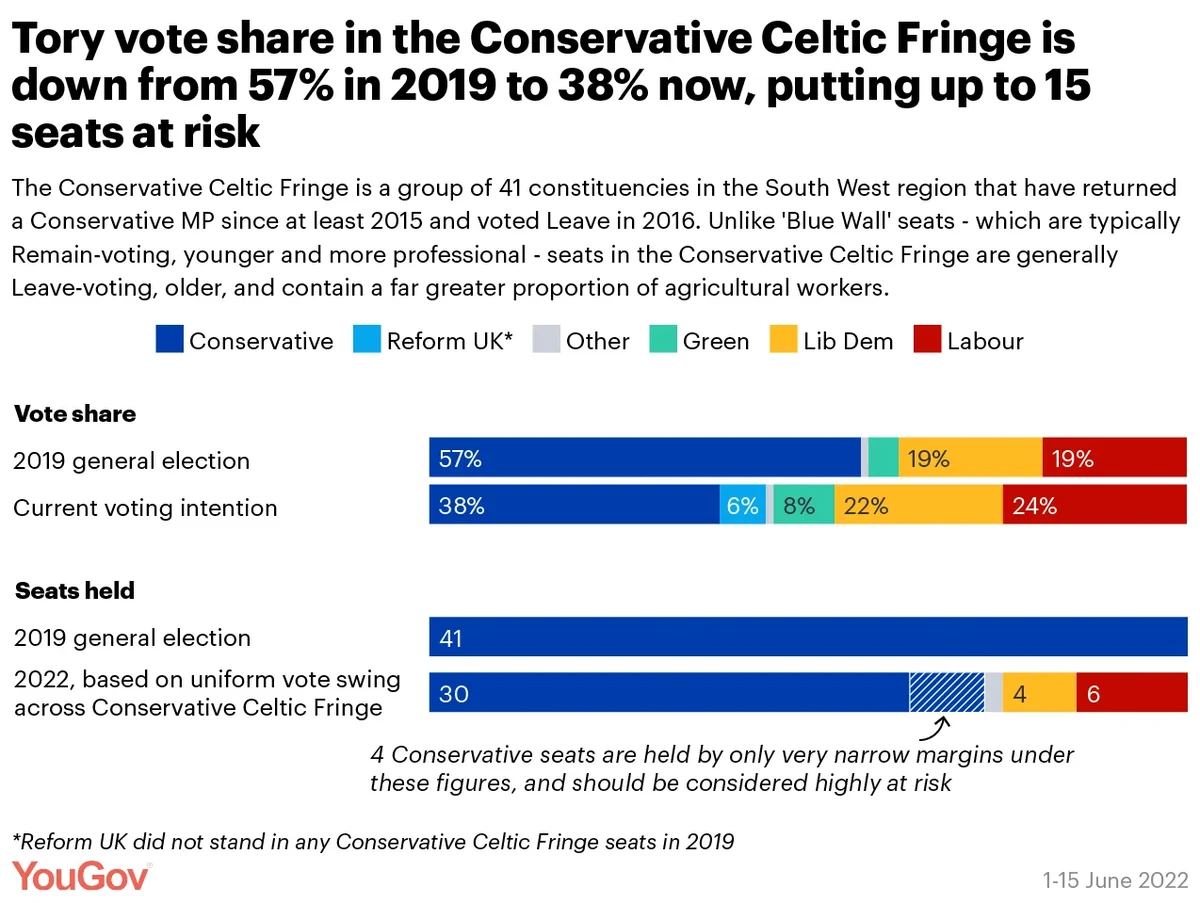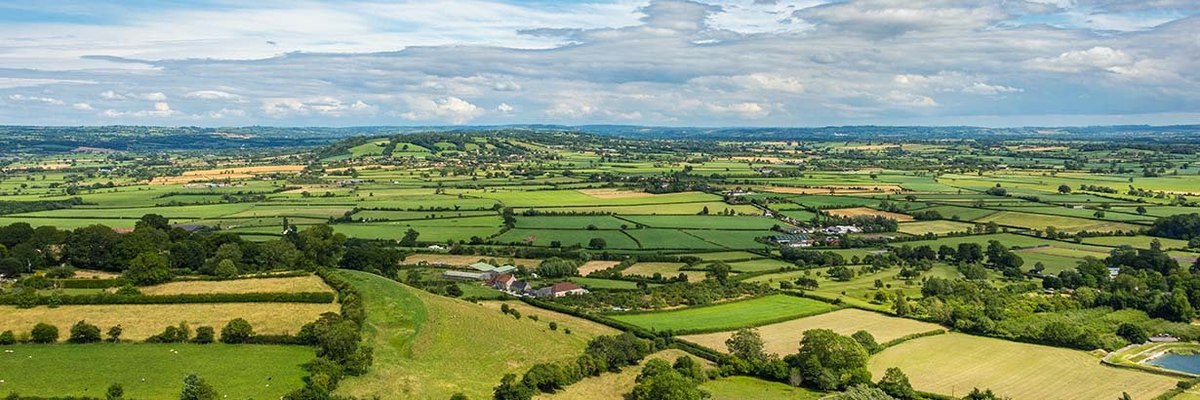YouGov figures suggest cabinet ministers could be set to lose their seats as the Conservative vote crashes by almost 20pts
Across the South West of England sit a raft of Leave-voting, ageing, and sparsely populated constituencies which have been held by the Conservatives since at least 2015, when a blue sea swept the region, propelling David Cameron to a Westminster majority.
These seats make up the ‘Conservative Celtic Fringe’, a group of 41 constituencies which fit under the umbrella of being in the South West region, have returned a Conservative MP since at least 2015, and voted Leave in 2016 (according to Professor Hanretty’s estimates).
Back in 2010, many of these seats were part of a fully-fledged, long-term Liberal Democrat heartland. No fewer than 12 constituencies in the Conservative Celtic Fringe were represented by Lib Dem MPs, who campaigned hard on local issues and provided a protest voice for voters with strong regional identities, unwilling to support one of the two main British political parties. Where they did not hold the seat, the Lib Dems were pressing hard in second place, with an average vote share of 30% in the Fringe constituencies they did not win in 2010. Now, however, not a single Lib Dem MP remains in the entire region.
While there is some commonality in terms of potential Lib Dem strength and Conservative weakness, these seats are very different to the ‘Blue Wall’. Namely, instead of being bastions of Remain, the Conservative Celtic Fringe voted by some margin to leave the European Union in 2016. And rather than being graduate-heavy and increasingly populated by young professionals and commuters, the average age across Fringe seats is much older than in Britain as a whole, and there are far more agricultural workers per capita than the national average.
But despite looking and sounding like exactly the sort of constituencies and voters that the Conservatives ought to be able to bank on as part of their voter coalition, rumblings in the Conservative Celtic Fringe threaten to open up a whole new front in Boris Johnson’s quest to win the next election.
Latest YouGov figures suggest that, if an election were being held now, the Conservatives would lose 11 seats in their Celtic Fringe, with a further four on the cliff edge of falling into opposition hands.

According to our first ever polling of over 800 voters in the Conservative Celtic Fringe this month, we find that both Labour and the Liberal Democrats are gaining at the expense of a huge decline in Conservative support.
Across all Conservative Celtic Fringe seats combined, Johnson’s party received 57% of the vote in 2019, with Labour and the Liberal Democrats on 19% apiece.
Now, according to our survey, the Conservatives have dropped a full 19 points down to 38% of current vote intention. The Liberal Democrats are now on 22%, and Labour have climbed by five points to 24% of the vote.
As has been the case in so many polls this year, much of the decline in Conservative support is down to 2019 Conservative voters telling us they either won’t vote or don’t know who they would vote for if an election were currently being held.
If we calculate party-level swing from 2019 to now and apply these figures uniformly across the 41 Conservative Celtic Fringe constituencies, then no fewer than 11 Conservative seats would currently be lost. Of those, Labour would pick up six, the Liberal Democrats four, and the independent candidate Claire Wright would take the East Devon constituency (if she were to stand again).
The losses include the seat of Cambourne and Redruth, whose current MP George Eustice is Secretary of State for Environment, Food, and Rural Affairs.
In a further major worry for the Conservatives, Minister for Brexit Opportunities and Government Efficiency, Jacob Rees-Mogg, would also be in peril of losing his North East Somerset seat. Based on our figures, he would be re-elected by only a slim margin.
Elsewhere, Labour would also be picking up both Bournemouth constituencies and the seats of Gloucester, Kingswood, and Swindon South.
The Liberal Democrats would re-take Wells, Chippenham, Taunton Deane, and St Ives.
The scale of losses which might occur in the Conservative Celtic Fringe do not come anywhere close to those in the Red Wall in 2019. But if the Tory seat total takes a hit from its South Western flank at the same time as it does in the Red Wall former Labour heartlands and across the new Blue Wall front, this Labour and Liberal Democrat pincer movement could become very costly to the Conservatives indeed.
Photo: Jack Pease Photography, via Flickr
See full results here










